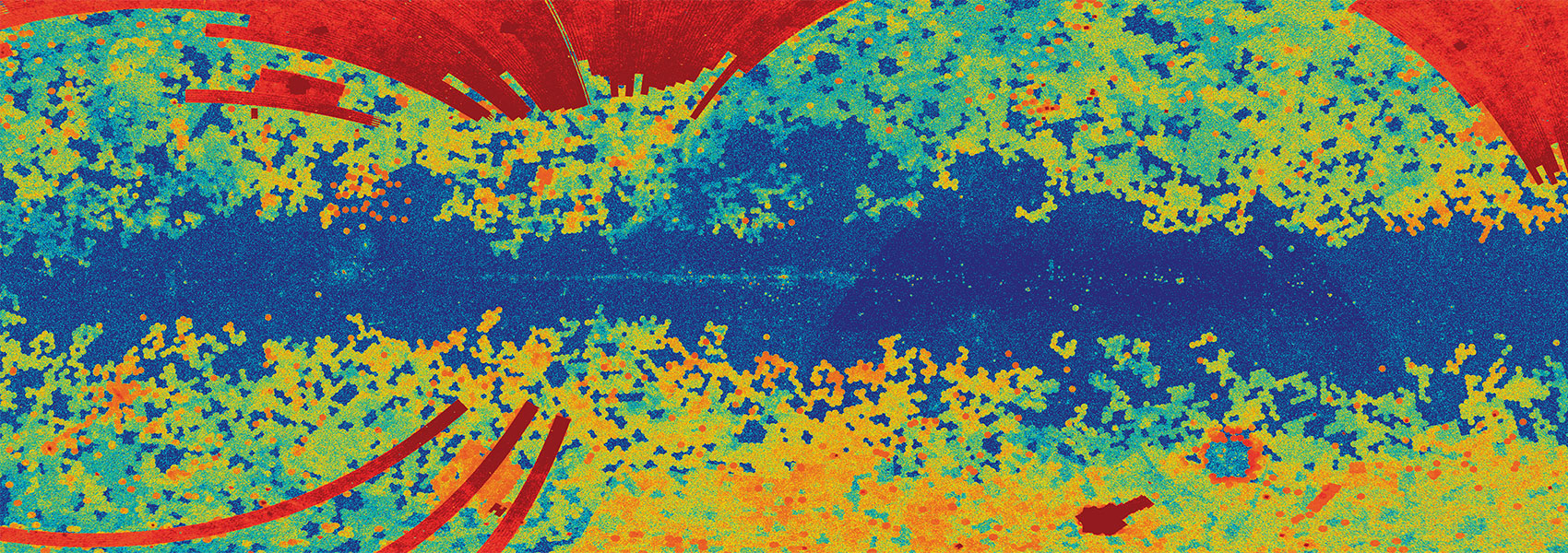
New Leadership for the NEO Surveyor Project at IPAC

Written by Seppo Laine (Caltech/IPAC)
Dr. Sean Carey has been appointed Task Lead and Dr. Joe Masiero has been appointed Science Lead of the Near-Earth Object Surveyor (NEOS) project at IPAC. Their new appointments were announced on April 22, and April 28, 2025, respectively. Both appointments are effective May 1, 2025.
Carey received his Ph.D. in 1995 from the Rensselaer Polytechnic Institute. He then worked at the Air Force Research Laboratory for three years as a research associate and geophysics scholar before becoming a research astronomer at Boston College, helping to produce an infrared survey of the Galactic Plane with the Midcourse Space Experiment (MSX) satellite. He then moved to the west coast in 2002 to become a staff scientist at IPAC, working on NASA’s Spitzer Space Telescope, where he led the IRAC Instrument Support Team and then became Manager of the Spitzer Science Center at IPAC in 2017. He was Manager of the NASA Exoplanet Science Institute (NExScI) at IPAC from 2019 to 2024. His scientific interests are varied and include massive star formation, exoplanets and near-Earth asteroids.
“I am honored to be selected Task Lead for the NEO Surveyor Data Center (NSDC) at IPAC,” said Carey. “NEO Surveyor is a fantastic project that will revolutionize our understanding of small bodies in the solar system, provide excellent data for general astronomical investigations, and most importantly make significant progress in its primary role of planetary defense by identifying potential hazardous asteroids and comets.”
“I am fortunate to have been the science calibration lead for NEO Surveyor and am very much looking forward to continuing the work with the excellent team we have assembled at IPAC. I am deeply indebted to Roc Cutri, the outgoing task lead/science lead for the NSDC, whose leadership, mentorship, and, most importantly, friendship will be impossible to replace. I am excited to lead the work to finish the data system and I am looking forward to a successful launch in 2027 and a mission of discovery and planetary defense.”
“Sean brings to this new assignment his extensive experience in technical management as well as extensive knowledge of the NEOS mission itself and its scientific objectives,” said IPAC Executive Director George Helou.
Masiero obtained his Ph.D. from the University of Hawai’i in 2009 and was then employed at the Jet Propulsion Laboratory as a postdoctoral fellow and later as a scientist, working on the Near-Earth Object Wide-field Infrared Survey Explorer (NEOWISE) and NEOS projects. Joe moved to IPAC from JPL in 2020 to work on both the NEOWISE and NEOS projects. He served as Deputy Principal Investigator on NEOWISE from 2017 to the end of the mission in 2024, and as member of the NEO Surveyor Science Team since 2010.
“I am excited to have the opportunity to help lead the NEOS team here at IPAC,” enthused Joe Masiero. “NEO Surveyor is going to provide a generational leap forward in our understanding of the asteroids and comets in our solar system, as well as the hazard they pose to Earth. The mission's Survey Data System at IPAC sits at the nexus of this work, ensuring that the mission's survey is successful, and that the scientific community receives the best data products possible. Personally, I am very interested to see what NEO Surveyor reveals about the sub-kilometer population of the Main Belt asteroids, and how these trace the history of catastrophic impacts in our Solar system. I am extremely grateful to Roc Cutri, who has built a great team and set us on course for success, and I am indebted to his many years of leadership.”
“Joe’s vast knowledge and insight derived from his research on asteroids, their physical properties and thermal modeling, demographics and evolution make him the perfect fit to the science lead role,” said IPAC Executive Director George Helou.
Roc Cutri retired from Caltech/IPAC on May 2 as the NEOS Lead at IPAC. His job is now split into a Science Lead and a Task Lead to partner in guiding the team to achieve task objectives in close collaboration with the Lead Architect of the NEOS Science Data System, Dr. Frank Masci. Cutri made foundational contributions to IPAC in many areas, including the Two-Micron All-Sky Survey (2MASS), (NEO)WISE and NEOS projects. Cutri also initiated the Greater IPAC Science Symposium (GISS) tradition and fulfilled the role of IPAC Deputy Director for many years.
- Date: May 22nd, 2025
- Category: IPAC News
- View Image


